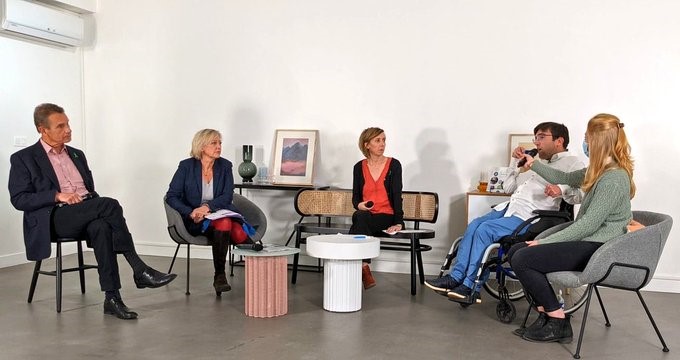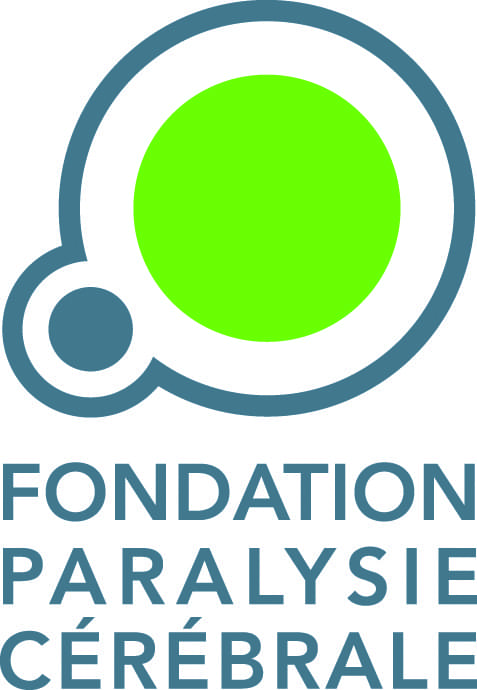THE WHITE PAPER ON CEREBRAL PALSY
The cerebral palsy white paper was disclosed on World Cerebral Palsy Day last October 2021. Delivered in particular to the Secretary of State responsible for people with disabilities, it was also sent to the various players in health policy in France and presented to the press. It is a plea for the implementation of a national action strategy for cerebral palsy.
To read the white paper on cerebral palsy
1/ The preparation of this white paper
This white paper was based on a large national survey (ESPaCe survey 2016/2017) of a thousand people living with, or caring for someone, with cerebral palsy. The results revealed overall dissatisfaction with care.
For more information on ESPaCe survey - Read the results of the ESPaCe survey
Following on from the survey:
• A rehabilitation charter (‘charte de la rééducation/réadaptation’) was drawn up by the researchers, in conjunction with both cerebral palsy professionals and people who were living with cerebral palsy. It has since been signed in 2019 by the French Secretary of State for people with disabilities, major associations in the field of disability, relevant learned societies and more than a thousand people.
Read the rehabilitation charter
• The french national Health Authority (Haute Autorité de Santé/HAS) included in its work program 2019 the development of good practices recommandations on rehabilitation for persons affected by cerebral palsy. These motor rehabilitation guidelines were published in december 2021.
2/ The white paper on cerebral palsy “In France, a national cerebral palsy action plan can no longer be evaded or postponed”
In 2020 and 2021, a joint reflection with the people concerned, families and professionals was set up under the leadership of Professor Marc Tardieu. Sixty people (parents of children with cerebral palsy, adults with cerebral palsy, and healthcare professionals) shared their opinions on the four main objectives of the french national 2018-2022 health strategy :
- Implementation of a health promotion policy, including prevention, in all settings
- Combatting social and regional inequalities in access to health care
- Guarantees regarding the quality, safety and relevance of care at every stage of the healthcare process
- Innovation to transform the health system by affirming the importance of service user inclusion
A steering committee then drafted an overall synopsis that addressed the key topics identified as most important by each workshop one-by-one. An independent review committee helped with the final version of the document. Structured in 5 parts, this document systematically addresses the following themes by first presenting the findings and then by proposing solutions to develop the national strategy:
- Centres of cerebral palsy care excellence
- Who decides on the quality and relevance of care
- From school to work: adapting to individuality, rather than rejecting complexity
- Regional and social factors that reinforce disability inequalities
- Scientific innovations and evidence-based practice: progress for everyone
This white paper, therefore, is a synthesis of the results from these four workshops. Discussion summaries were agreed upon by the participants. It forms an introduction to the work that is needed to create a national strategy that is truly for cerebral palsy.
THE 7 PILLARS OF THIS WHITE PAPER
This summary prioritises seven action points that should serve as pillars in the development of a national strategy to support and include people with cerebral palsy
1. Enable everyone to participate fully in the home, social, and private life of their choice. Improve pay and conditions for care assistants of children with disabilities, support those living in the community and clarify the regulations for sexual surrogate partners.
2. Create centres of excellence to provide accurate and reliable information and support for people living with cerebral palsy in each region. They should also coordinate with each other on a national and international basis
3. Strengthen the provision of pre- and perinatal preventative treatment to reduce the incidence of prematurity and avoidable cases of cerebral palsy
4. The care system needs to adapt to recognise the range of individual variations in cerebral palsy symptoms. In France, for example, this should be in line with the 2022 recommendations of the HAS, the French national health authority (Haute Autorité de Santé)
5. More research is needed into rehabilitation methods and techniques. This is not just a question of funding, patient-family-researcher partnerships are required
6. Increased training to raise awareness about cerebral palsy and support health professionals regardless of where they are based. Everyone should benefit from the progress of research!
7. Educational and vocational guidance should be adapted so that it can respond to the complexity of cerebral palsy
The words gathered in this white paper, shared by people living with cerebral palsy and professionals, imply going further. Too much suffering, too much weariness, too much anger has been expressed. Routine is present and scientific research reduced when it is essential. The common message is simple and clear and expresses :
• The demand for participation and respect for everyone's decision-making autonomy.
• The need for skills, the need for resources, the need for training of professionals in order they can invest in the complexity and diversity of cerebral palsy disorders
Work paths have been opened , people living with cerebral palsy, parents of children, professionals as well as the Fondation Paralysie Cérébrale and its partners are ready to continue working with national authorities so that progress can be made in the next five years.

Read the white paper on cerebral palsy
3/ October 6, 2021: A Call to Action, World Cerebral Palsy Day
On the occasion of the publication of the white paper on cerebral palsy, on behalf of the 125,000 people with cerebral palsy like them, three young people (Julia Boivin, Matthieu Chatelin and Gaëlle Drewnowski) launched the October 6 call for action and appealed to the public authorities.
“This white paper is an opportunity to take action and draw the lines of a truly inclusive society”
4/ Round table « The white paper on cerebral palsy, and after? »
On 8 November 2021, a round table discussion with Ms Sophie Cluzel, Secretary of State for persons with disabilities, provided an opportunity to discuss the pillars of the White Paper. A young person with cerebral palsy, a parent, a medical professional, a medico-social professional questioned the minister. At the centre of the exchanges, the participation in social life, the training of professionals, the importance of research and the creation of centers of cerebral palsy excellence.
See the roundtable with Ms Sophie Cluzel, in french


